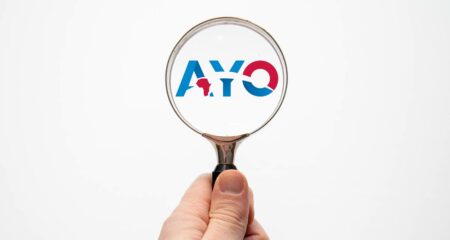
After initially approving the controversial listing of Sagarmatha Technologies, a collection of small e-commerce companies huddled together with 55% of Independent Media, the JSE has rescinded its approval.
According to the JSE, this was because Sagarmatha had not submitted its annual financial statements to the Companies and Intellectual Property Commission (CIPC) at the time the pre-listing statement was approved by the JSE.
Thus it was in contravention of the Companies Act and JSE Listings Requirements, which the JSE was unaware of at the time.
The JSE added that Sagarmatha had not released its results for the 12-month period ending 31 December 2017 by 9 April, as required.
However Sagarmatha states that it was compliant with the CIPC by 11 April, and had lodged its financials by this date. Its financial statements, which were included in the pre-listing statement (and thus were publicly available), were released on 10 April, just a day after the deadline.
The company notes that it is disappointed that the JSE has decided that the listing cannot proceed on the 13 April as planned, as a result of the above.
These events follow a week of intense media debate about the proposed listing, which was announced by Sagarmatha at the end of March. The company presented itself as a media and technology giant in the making, not unlike a miniature Naspers or Facebook or Amazon. Aside from the loss-making Independent Media, its assets include e-commerce company Loot.com; a news agency, African News Agency; Video360, a video sharing site and app; and some other small businesses.
The intent was to raise R7.5bn, based on a share price of R39, which values the company at an incredible R50bn. This is more than Datatec, EOH and Adapt IT put together. This fantastic valuation is what inspired Sagarmatha praise singers to refer to the company as an “African unicorn”. This is in reference to US tech start-ups that are valued at over $1bn.
First to raise the alarm was Business Day’s Ann Crotty, who noted in this article that the rush to raise capital via a listing could have something to do with the fact that Independent Media, which makes up the bulk of the new company, is heavily loss-making, with its liabilities far outstripping its assets and debt repayments coming due.
This critical article was followed by a damning analysis of the proposed listing written by investigative journalist Sam Sole, a take on the absurdity of the proposed listing by the Daily Maverick’s Ivo Vegter and a strongly worded opinion from Business Day which questioned what responsibility the JSE has towards ensuring investors are not taken for a ride by companies that list on the exchange.
Heavily promoted
The Independent Media’s stable of newspapers and online platforms was galvanised to fight the good fight with articles appearing in Business Report, Pretoria News and the Cape Times, among others, all heavily promoting the proposed listing.
It seems it was workers’ funds that would make up the bulk of the R3bn to be raised ahead of the listing. The South African Clothing and Textile Workers Union planned to take up shares, while BBC Capital, the investment company of the Black Business Council, had agreed to buy six million shares valued at R240m, among others.
This is in addition to the Government Employees Pension Fund, which funded 80% of the original acquisition of Independent Media from the Irish-owned Independent Group in 2013 (20% direct stake as well as funding Iqbal Survé’s consortium, which owns 55%).
Where to from here for Independent Media and Sagarmatha Technologies remains to be seen.
- This article was originally published on Moneyweb and is used here with permission



